When Chalkbeat teamed up with Headway at The New York Times to ask young people how they are thinking about the upcoming presidential election, we received hundreds of responses. First-time voters told us about the issues that will be top of mind when they cast their ballots. What we heard was all over the map, literally — gun violence and housing affordability in their communities, statewide restrictions on abortion access and what books they can read in school, and, at the national level, immigration policy and the future of democracy. Other respondents prioritized global issues, including climate change and the ongoing wars in Ukraine and Gaza.
In the historically close matchup between Vice President Kamala Harris and former President Donald J. Trump, the youth vote and the extent to which young people turn out on Nov. 5 could help determine the election’s outcome. When the Institute of Politics at the Harvard Kennedy School polled eligible voters ages 18 to 29, 56% said they “definitely” plan to cast their ballot. Four years ago, according to a Tufts University analysis, 50% of Americans in that age bracket voted, the third-highest turnout since the voting age was lowered to 18, in 1971.
We wanted to better understand the issues driving young people to the polls this year. So we asked six first-time voters to tell us what issues they’ll be thinking about as they fill out their ballots. Here’s what they told us, edited for length and clarity.
Will you be a first-time voter this year? We want to hear from you at community@chalkbeat.org and DearHeadway@nytimes.com. Tell us the issue most influencing your ballot.
The issue driving my vote: Gun violence
Anabelle Sanchez, 18, graduated from Jones College Prep in Chicago and now attends Michigan State University in East Lansing. She plans to study political theory, constitutional democracy, and economics and hopes to pursue a career in politics, spurred on by her experiences growing up as a Latina. “As a minority, I often felt I didn’t have leadership that looked like me. That’s why I want to go into politics,” Annabelle said. For now, though, she’s “ thankful to have the power to vote.”
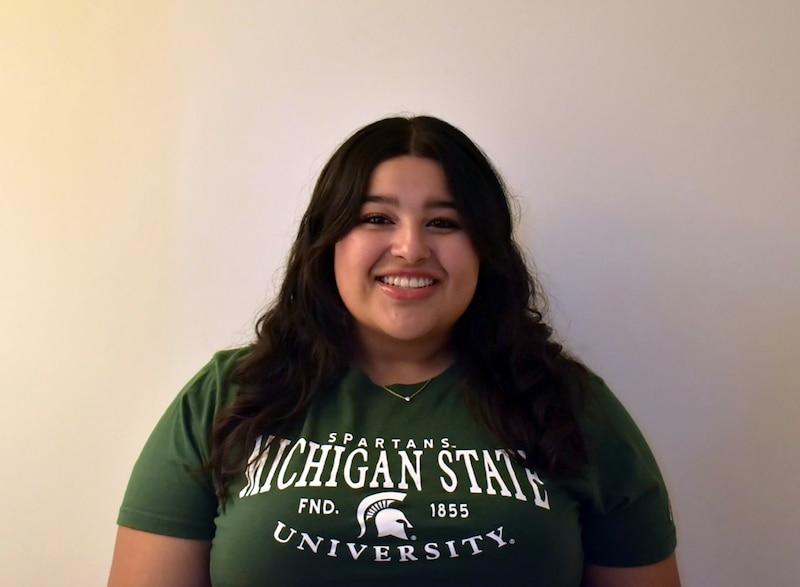
My junior year of high school, I went to a mall. I was looking through the clothing racks, and all of a sudden, I saw a store manager quickly run to the front to shut the doors.
I had never experienced something like this, but I instantly knew what was happening. Because I live in America. People started yelling to just run to the back of the store. There were dozens of us packed in a back room, like sardines. It was the most horrific 30 minutes of my life because we knew someone out there had a gun.
Thankfully, no one was harmed. A SWAT team evacuated us, but just the idea of facing death was very frightening. It hit me even more because not long before, there was a [deadly] shooting at a mall in Allen, Texas.
Now, at Michigan State, I have two classes in the building where the campus shooting occurred last year, and three students lost their lives. In one of my classes, I have to walk right past the area of the shooting.
Whether you live in a neighborhood where hearing gunshots is common or, quite frankly, whether you leave your house and just go shopping or go to school, we’re forced to think about gun violence and how the issue impacts us and others.
The issue driving my vote: The economy
Owen Riesenberg, 18, is a recent graduate of Woods Cross High School near Salt Lake City and an automotive technician at a Ford dealership. Owen plans to vote in next month’s presidential election “even though there’s an almost guaranteed outcome here,” since Utah has thrown its support behind the Republican candidate for president in every election for more than 50 years. “I still want to make my voice heard,” he said.
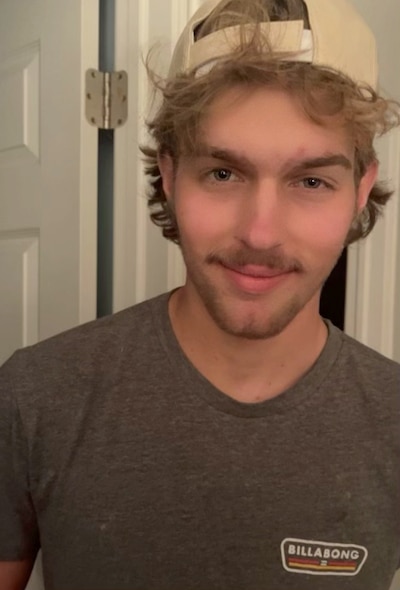
If you watch Fox News or Newsmax, they’ll talk about how Kamala is going to destroy the economy. In left-wing media, they talk about how Trump is a monster going to destroy democracy. I think most of what has America polarized is just how fervently the media on both sides of the aisle are fighting each other.
I like to stick to podcasts and more long-form news. I usually have one earbud in and listen to the radio as I’m working on my vehicles for the day. My routine, every morning, is to listen to something like Joe Rogan’s podcast, and then, later in the day, to listen to Ben Shapiro on The Daily Wire.
The No. 1 issue for me is definitely the economy. I pay so much for gas. I pay so much for food. I can’t move out of my parents’ house because rent here is a minimum of $1,500, typically.
I’d like the tax on gas heavily reduced. I’d like regulations for small businesses just starting up to be less hefty. I think that interest rates should be brought down.
I want the government to be as uninvolved in my life as possible. I don’t want any handouts. I don’t want checks for disasters. I don’t want a widespread government health care plan. I want to be able to work for myself and not be taxed so much to pay for government programs that somehow benefit me. I’d rather just keep that money and decide where it goes.
The issue driving my vote: Book bans
Emily Muñoz, 18, graduated from Harry S. Truman High School in the Bronx and is a first-year student at Vanderbilt University in Nashville. She’s always loved to read and, growing up, enjoyed books in which she felt represented and those in which she got to learn about different cultures, backgrounds, and gender identities. “I genuinely believe that reading is how you discover more about the world and yourself,” she said.
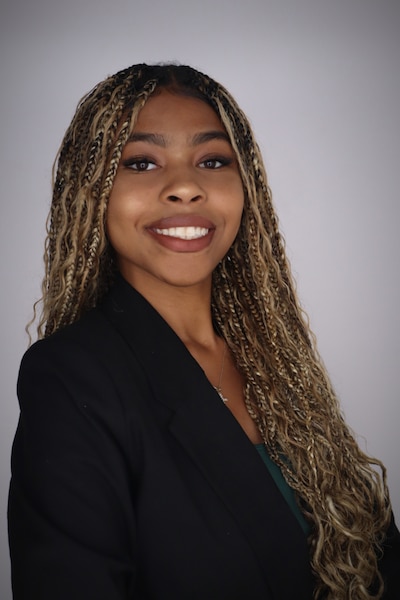
Something that’s really personal for me as a Black woman is book banning, the banning of African-American courses, and just this erasure of Black history. AP African-American Studies classes have already been banned in Florida, and that’s deeply concerning.
I have it a lot easier because, in New York City, banned books are celebrated. I’m grateful that I’ve been able to grow up like this. But then, I worked as a teen reading ambassador at the New York Public Library. We held a Freedom to Read contest, and as I was scoring the submissions, I heard from a lot of students in conservative states where they can’t read certain books in their classes. Most of the books were about race or LGBTQ issues. That’s when it really became clear to me.
One banned book that comes to mind is “All American Boys” by Jason Reynolds and Brendan Kiely. It’s this story about a young Black boy who gets assaulted by the police. It’s told from the boy’s perspective and also from the perspective of a white boy who [witnesses the beating]. Reading it, I was wondering: Why would someone want to ban this book? It is a genuinely good book.
Honestly, teachers don’t get paid enough to deal with all of this. I think they should have the opportunity to teach freely and without as much restriction.
The issue driving my vote: the Israel-Hamas War
Samantha Sandhaus, 18, graduated from Central High School in Philadelphia and attends Lehigh University, where she is pursuing an integrated degree in engineering, arts, and sciences. In high school, she led a nonprofit called Feeding Philly that fights food insecurity, an experience that “was important in making malnutrition a vital issue to me.”
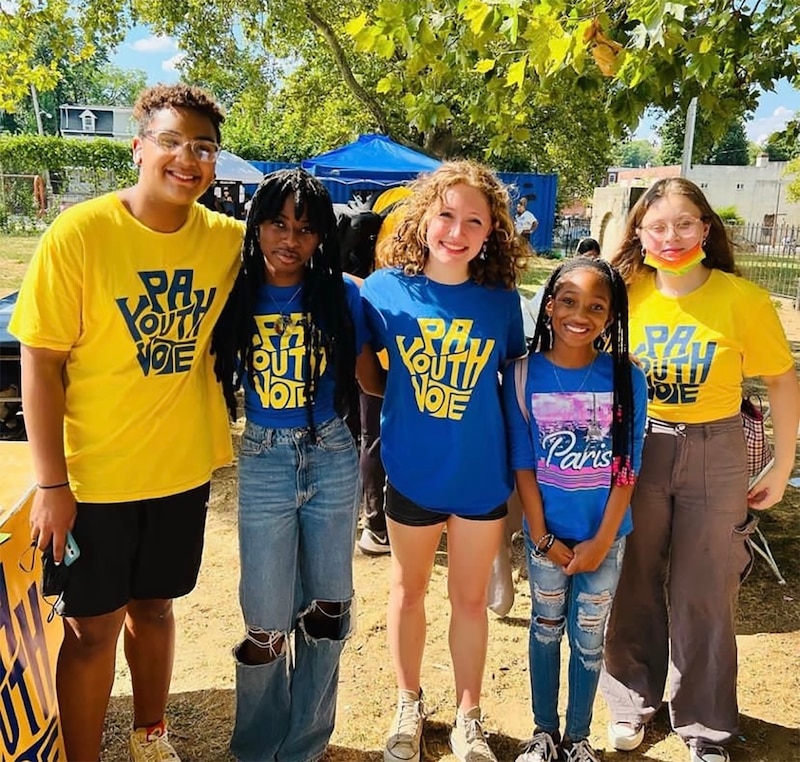
In high school, I got to help with work addressing food insecurity in Philadelphia. I’ve seen the effect of malnutrition, especially on young children, and it made me want to do all I can to get involved civically and make sure we have policies that center on social justice.
This past year, I’ve seen a lot on social media on global health inequities, especially around nutrition, and the photos of children in Gaza who are hungry and hurting due to the Israel-Hamas war have really affected me. That’s motivating me to research the presidential candidates’ stances on the issues and whether or not they are putting forth ideas that could actually help bring the conflict to an end and provide for families in the horrors of war.
I know this is a very contentious issue for Americans to speak about, but I’ve been to a fair amount of different peaceful protests and marches, and a lot of young people I hear speak are saying that this is an issue that weighs heavily on their minds and will affect their votes.
In a swing state like the one I’m in, I know how much my vote matters. And I feel like America’s role in the Middle East is going to continue to be crucial. I really want to hear the candidates talk about this as something they will prioritize, that they have a path toward ending this conflict, saving lives, and aiding the humanitarian crisis that is happening right now.
The issue driving my vote: Abortion access
Torrance Johnson, 18, graduated from Clarenceville High School in Livonia, Michigan, and is a first-year student at Wayne State University in Detroit. As a child, he dreamed of growing up to become president of the United States. These days, he’s more interested in pursuing a career in music production. He’s casting his first vote in part to affirm his belief in abortion rights. “I always tell people: If that’s what you’re against, you don’t have to do it,” Torrance said. “The choice should be left up to the person it directly affects.”
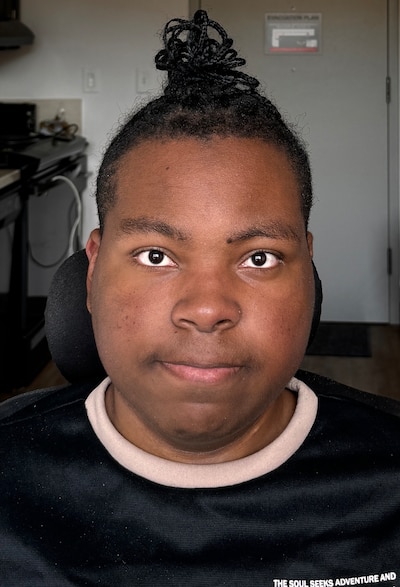
When the Supreme Court overturned Roe v. Wade, it got me thinking: If this is what our government is doing, do I want new people in government or not?
I’m very pro-choice, but it’s not just about pro-life, pro-choice, or about abortion, no abortion. It’s about having options. I’m pro having options. It has to do directly with my disability and not always having options.
I’ve been using a wheelchair for 14 or 15 years. And throughout my life, I’ve found struggles getting into some places because they only have stairs. If it’s on the second floor, I can’t go. One time, my school had a field trip, and because I couldn’t participate in the activities they were doing, they excluded me — rather than saying, you can join, but since you can’t do this, maybe you can do that instead.
The thing about America that people try to copy or mimic is the idea that it’s the land of opportunity. Do we want more opportunities or less opportunities, more options or less options? It all starts with Roe v. Wade.
Let the people have their choices — it’s none of my business.
Ever since I was a child, I couldn’t wait to turn 18 so I could vote. My American government professor recently took a poll, and in a class of about 50 people, nearly everyone said they were voting in the upcoming election. If that’s any sign of what 18-24-year-olds will be doing, it will be a good turnout. We have to be the change we wish to see, and we do that by voting.
The issue driving my vote: U.S. foreign policy
Alexander Cisneros, 18, a Colorado native, graduated from Denver East High School and attends the University of Colorado Boulder, where he is studying history. His family would often spend time visiting relatives abroad when he was growing up, and he credits that travel with widening his view of the world and his place in it. Alexander said that people often assume that younger people like him “only care about the issues at home that clearly impact our daily lives,” but it’s foreign policy that “I’ll most have in mind in November.”
I have family all over the world — in Greece, Mexico, and Canada. I grew up experiencing those different cultures, and when I was at home a lot during COVID, I got really into watching history documentaries.
That led me to love learning about World War II and the Cold War. One of the big things with World War II was that the United States wasn’t involved in international affairs as much as it should have been. If it had been more involved, then perhaps we wouldn’t have had as devastating a conflict during that time. So, I think anything to try and prevent another conflict or end conflicts more quickly while making sure that autocratic countries don’t continue to expand is something pretty important to me.
I want to see the U.S. stay a part of the United Nations and NATO. I think it is really important that the United States continues to support Ukraine. If we were to abandon Ukraine, then that would send a signal to the world that, yes, autocratic powers can expand, which would be particularly worrying when it comes to China and Iran.
Caroline Bauman is the deputy managing editor for engagement at Chalkbeat. Reach her at cbauman@chalkbeat.org.
Gabrielle Birkner is Chalkbeat’s features editor and fellowship director. Reach her at gbirkner@chalkbeat.org.
